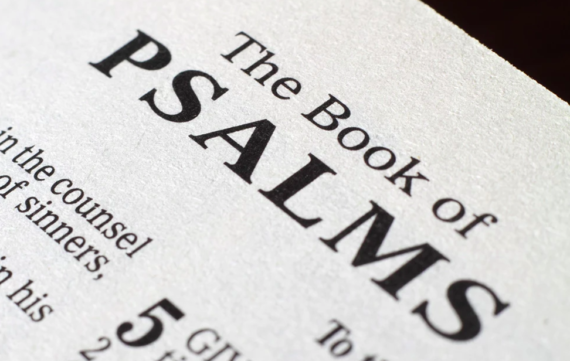It is hard to say what the best means of approaching this psalm might be. We will attempt concentrating on three major figures of speech it contains.
The aim of psalm 75 is not the transmitting information but the setting of a tone. The goal is to create a mental atmosphere in which God is praised, in which difficulties are put in perspective, and we are enabled to draw near to God. Often this is done through some figure of speech. If we miss these, we often miss the main point.
God will steady the pillars.






“At the set time that I appoint I will judge with equity. 3 When the earth totters, and all its inhabitants, it is I who keep steady its pillars.” (2-3)
Overly literal minds have wrecked our understanding of figures like this. The scripture is not suggesting that the earth is mounted on pillars. This is evocative language designed to help us visualize the unsteadiness of life.
We are familiar with what happens when a major structure is not sound. Perhaps we remember houses with bowed walls or uneven floors. The bigger the structure, the more important structural integrity will be. So, if the supports of the earth are not as they should be, we have a real problem.
How are we to fix the supports of our world? Have you ever tried to put a foundation under a building that already exists? To repair the foundation of the world is a hopeless task if it is viewed as our task.
The only hope is to leave the task to the Lord. We have our tasks, but the care of the earth’s pillars is not among our tasks.
We must not lift our horn.
“I say to the boastful, ‘Do not boast,’ and to the wicked, ‘Do not lift up your horn; 5 do not lift up your horn on high, or speak with haughty neck.’” (4-5)
They were familiar with cattle, sheep and goats. The behaviour of an aggressive ram was well known to them. God’s people must not act that way. We must not be boastful or aggressive. Such behaviour shows that we are against the Lord, not for him.
The Lord has a cup.
For not from the east or from the west and not from the wilderness comes lifting up,7 but it is God who executes judgment, putting down one and lifting up another.
8 For in the hand of the Lord there is a cup with foaming wine, well mixed, and he pours out from it, and all the wicked of the earth shall drain it down to the dregs. (6-8)
Elsewhere, the psalms picture his cup of blessing (23:5; 116:13). But for the wicked his cup is a cup of judgment. It is his to judge, not ours. It is him to whom we look for justice, not worldly rulers. While they are supposed to be his servants to bring about justice (Rom 13), they rarely are. But, in the end, he will put down one and lift another and will bring the cup of judgment for all to drink.
Let us not make the mistake of trying to do the Lord’s job for him. The outcome is up to him. We are not called to produce a given outcome, but to remain faithful and let him care for the ultimate results.
Let us not be among those who lift themselves in pride — it can be done by religious people just as by the worldly.
He has a cup. It will be a cup of blessing for his people, but a cup of punishment for those who lift themselves against him.

